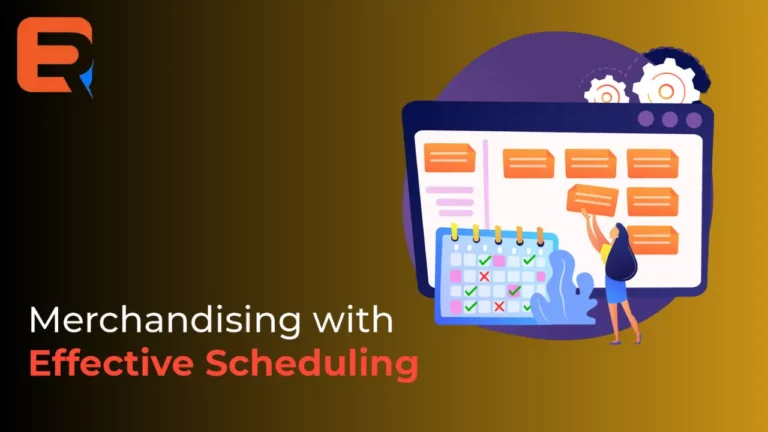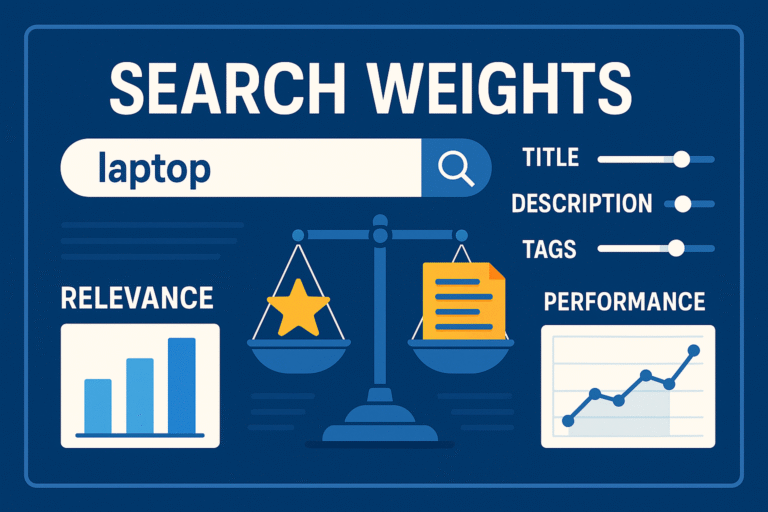Merchandising plays a critical role in determining the success of any retail business. With growing competition and rapidly changing consumer preferences, strategic merchandising is key to driving optimal sales and boosting profitability. While innovation and creativity are vital, effective execution holds equal importance. This is where scheduling becomes invaluable. By enabling the scheduling of collections and campaigns, retailers can strategize their merchandising activities in a well-structured manner. Listed below are some important tips for strategizing merchandising with effective scheduling.
Organize Collections in Advance
In retail, managing multiple products and collections simultaneously across departments can lead to disorganization if there is no systematic process. With scheduling, everything from new merchandise launches to seasonal collections can be planned and organized in advance. Merchandisers gain the ability to create collections, include relevant products and images, apply filters, and schedule them to go live on desired dates. This approach streamlines operations while preventing last-minute hassles. If a specific collection needs to be promoted during festive sales or a flash deal, it can easily be scheduled rather than rushing to complete it on time.
Create Comprehensive Campaign Calendars
Correlating collections and campaigns with specific periods, such as festive seasons or flash sales, optimizes results. Scheduling enables the creation of detailed campaign calendars, mapping future initiatives over a period. This includes synchronizing collections with relevant dates, arranging one-time deals and promotions, and slotting maintenance periods. Well-crafted calendars provide clear visibility on upcoming merchandising activities. Resources can accordingly be allocated to focus on scheduled tasks. Calendars also facilitate impact analysis of past campaigns, informing future strategic decisions.
Test Multiple Strategies Systematically
The retail landscape constantly evolves, so taking new strategic routes becomes important. However, testing strategies require a careful approach to avoid risks. With scheduling, retailers can create collection drafts introducing unique value propositions, assortments, or targeting methods without impeding ongoing work. Multiple drafts with subtle variations can simultaneously and systematically be tested to identify the most productive positioning. Live insights reveal top-performing characteristics that can then be incorporated across collections. This risk-free experimentation empowers data-driven optimization of long-term strategies.
Avoid Manual Errors Through Automation
Manual tasks leave room for mistakes owing to human fallibility, especially in complex operations. However, with scheduling, collections are programmed to go live on scheduled release dates without requiring manual intervention. This eliminates associated error risks such as incorrect product filter applications, duplicate or missing products, and delays from oversight. Automation ensures flawless execution of strategic plans across departments, maintaining brand consistency and delivering seamless customer experiences. Particularly for large-scale initiatives like seasonal or flash sales involving detailed workflows across time zones, automation provides accuracy and reliability.
Capitalize on Timely Opportunities
Customers today expect immediate gratification of their needs via seamless omnichannel experiences. Any delay in addressing time-sensitive demands, such as launching new collections to align with contemporary trends or catering to flash sale demand surges, can impact brand perception negatively. With scheduling, relevant collections and campaigns can be readied well in advance through automated, timely deployment on their scheduled active dates without relying on real-time manual publication. This empowers capitalizing on fleeting opportunities to boost customer satisfaction and stickiness.
Measure Performance and Correlate to Future Plans
Each strategy implemented requires examining its impact through KPIs such as user engagement and conversion rates to optimize further efforts. With scheduling, past collection or campaign performance metrics are readily available for reference via automated version management. Their scheduled launch and end timings also ease correlating outcomes with time factors. Such analysis facilitates data-backed decision-making. Less successful strategies can be discarded, while strong performers may be scheduled more frequently. Impact measurement enables continuous enhancement of strategic scheduling plans.
Undertake Maintenance During Off-Periods
System upgrades, software patching, data maintenance, and other behind-the-scenes technical tasks can hamper operations if conducted simultaneously with core activities. However, leveraging scheduling facilitates carrying out maintenance during pre-planned slots marked offline or with placeholders, avoiding disruptions. For instance, opting for maintenance windows post weak-performing campaigns or between seasons prevents interaction gaps. Contextual scheduling of non-operational periods maintains seamless experiences.
Deliver Relevant Experiences Contextually
Consumers expect personalized, location-specific and device-optimal experiences on hand. With scheduling, collection settings like geo-targeting, campaign length, device-specific content and design can be preconfigured contextually. For example, various versions for desktop and mobile, using localized languages and images or customizing product filters basis regional preferences. Automated scheduling ensures their timed deployment according to region and device to enhance customization. This lifts engagement through contextual relevancy.
Obtain a Holistic Merchandising Overview
Managing numerous options spread across categories, inventories, purchase cycles, and budget heads becomes challenging without a unified dashboard. Scheduling brings all related information together with a bird’s-eye view of scheduled and live collections, campaign performance, planned maintenance dates, team activities and more. This holistic visibility aids informed decisions by jointly considering multiple interlinked factors for optimal outcomes. Resource allocation and coordination are also facilitated.
Collaborate Seamlessly Through Approvals
When numerous stakeholders are involved, making edits or publishing merchandising plans requires approval streams for compliance and quality assurance. With scheduling, collection draft workflows can incorporate built-in approval Gates involving designated reviewers automated through configurable email notifications. Comments can be added and approvals tracked seamlessly on a centralized portal. This removes bottlenecks while ensuring adherence to guidelines through transparency of activities.
How Expertrec custom search can help with effective merchandising scheduling?
A crucial aspect of strategic merchandising is understanding customer search behaviours and preferences. Expertrec’s powerful custom search solution provides deep insights into this. With its advanced analytics and keyword tracking abilities, retailers using Expertrec gain valuable search data specific to their business. This search intelligence can then be effectively utilized for planning scheduling strategies.
For instance, trending terms and auto-suggestions help identify top customer priorities to focus collections around. Search patterns also help determine the best dates, times and platforms to schedule campaigns for maximum visibility. Overall, Expertrec’s custom search elevates scheduling by enhancing the relevance of merchandise according to what customers actually search for. This ensures collections address high-intent needs, boosting engagement and, ultimately, sales.
Conclusion
Effective scheduling streamlines complex merchandising operations by handling multiple moving parts in a synchronized manner. Apart from organizing activities in advance, it supports test-and-learn strategies, maintains accuracy, anticipates customers and adapts swiftly to leverage opportunities. Impact tracking and contextual customizations also optimize future efforts. When teamed with data and analytics, automated scheduling elevates outcomes through strategic intelligence. Overall, it empowers retailers to consistently deliver cutting-edge, tailored, and timely experiences, driving engagement and performance excellence.




